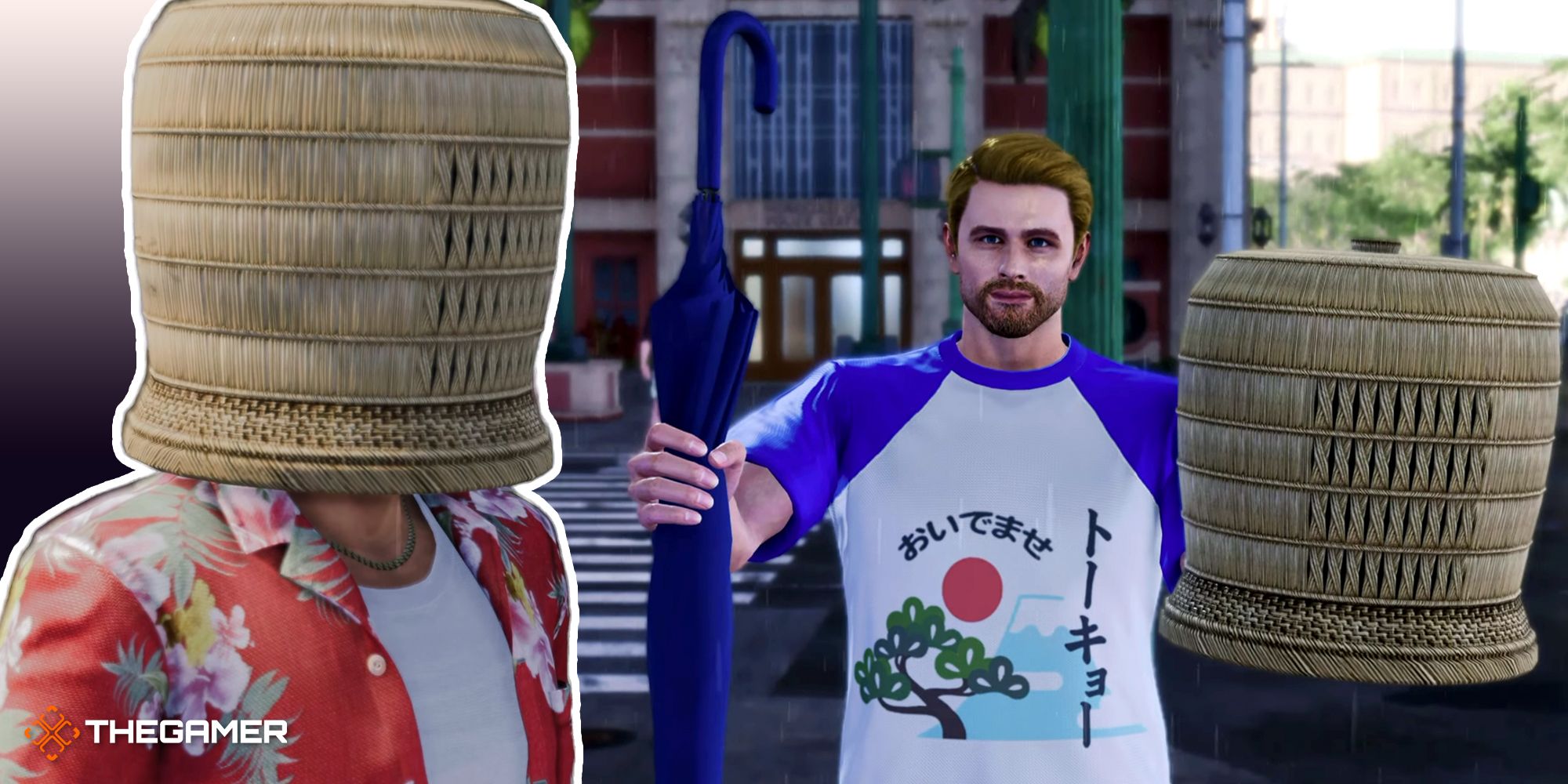An Infinite Wealth Substory Asked Me To Be More Asian And I Took That Personally

Summary
- Kasuga reluctantly embraces Japanese stereotypes to cater to an American otaku's expectations, highlighting the pressure to conform to cultural expectations.
- The substory showcases the dangers of reducing people to stereotypes and the importance of recognizing individuals as complex human beings.
- Cultural appreciation should go beyond surface-level interests and delve into understanding the diversity within a culture, as portrayed through Nathan's realization about Japanese culture.
The Samurai, May We Walk Together? substory in Like A Dragon: Infinite Wealth is my favourite one so far, which is a high bar to meet considering every story weaves effortlessly between being poignant and being hilarious. Obviously, spoiler alert: you might want to bookmark this article and come back to it later if you haven’t done this substory, because I’m going to dive into detail about why I related to it so much as an Asian person.
Can Kasuga Be Nathan's Noble Samurai?
As we so often see in Like A Dragon games, this substory starts with a fight. Kasuga, being the good guy he is, abandons his plans to take a dip in the ocean to defend a random woman on the beach. Little does he know that Nathan, a director at a local Hawaiian TV station, has been watching him. Nathan is working on a show that focuses specifically on Japanese tourists in Hawaii, and he’s desperate to put Kasuga in it – according to him, our big-haired protagonist exemplifies the “modern Japanese samurai”, and despite Kasuga’s protestations that he’s just a random Japanese dude, Nathan begs Kasuga to help.
Nathan immediately addresses Kasuga as “onii-san”, continually references pride, virtue, and honour, and even casually throws a Japanese idiom into their conversation. When he says that he loves everything about Japanese culture and that he created this show specifically to talk to Japanese people, it all comes together for Kasuga – Nathan is a hardcore otaku, particularly obsessed with classic Japanese films made by directors like Kurosawa, Tsuburaya, and Ozu.
You can’t really fault him for that, considering that those directors are actually some of the most influential of their time and are regularly included in Film Studies 101 syllabi.
We get to decide if Kasuga wants to indulge this man and make some easy money by participating in his show, noting that it does feel weird to be featured in a show specifically about Japanese people. If Kasuga agrees, Nathan briefs him on what’s going to happen. The show is called Samurai, May We Walk Together?, which is as funny as it is cringe, and the crew will be following and filming Kasuga around Honolulu so they can capture his “Japanese spirit”.
Nathan then brings him to a food truck and presents him with three food options, telling him he can only eat one of them. Two are delicious-looking Hawaiian specialties. It’s clear, though, that Nathan wants you to pick the third and most Japanese dish, a sad-looking bowl of cold rice and Japanese barn millet. I refused to choose the rice out of spite, but picking the option Nathan wants will boost different personality traits and make him and the crew very happy. Choose wrongly, and they’ll express frustration and disappointment. Man, talk about peer pressure.
The rest of the substory goes very much the same way. By the end of the game, the absurdity ratchets up to 100, with Nathan telling Kasuga that since he lost a game of darts (which he was forced to play with ninja shuriken), he has to regain his honour by either stabbing himself in the stomach or amputating part of a finger. Kasuga reacts in horror, saying that obviously, modern Japanese people do not mutilate themselves for losing games, and he’s not going to do that just for Nathan’s show. Nathan seems genuinely surprised by this, saying his crew thought it was “just part of the lifestyle”.
Unfortunately, Kasuga Is Just Some Guy
Throughout the substory, it’s very clear that Kasuga is catering to his otaku audience by making decisions that go against his nature. If this American crew wants him to eat the Japanese food and wear the Japanese hat, he’ll do it. But he’s also critical of the stereotypes they’re forcing him to fit into, and it’s clear that it’s making him increasingly uncomfortable and unhappy. And as Kasuga and Nathan talk more, it becomes clear where those stereotypes come from.
Nathan is filtering his expectation of Japanese behaviour through media instead of real experience – he even admits he’s never been to Japan, and has never even left America. He was bullied as a kid and found solace in samurai movies, finding deep meaning in the way they portrayed honour and loyalty and modeling himself after these warriors who protect the weak. The Japanese media he watched shaped his worldview, and helped him find meaningful community with other people.
Whether Kasuga conforms to Nathan’s expectations is up to you. I took their requests very personally, and refused to do what Nathan wanted me to. I’m Asian, born and raised in Asia, and I’ve met a lot of people from different places because I travel a lot. I’m from Singapore, and most people outside of Asia don’t know anything about my country. No matter how well-intentioned these people are, the same questions always come up. Why is your English so good? Why do we have similar mannerisms? Why aren’t you acting more Asian?
I recognised a long time ago that most people are actively trying not to sound intolerant, and in fact, most people have varying degrees of cultural appreciation, just like Nathan. Most people I meet have no intention of reducing me to stereotypes, but end up doing it anyway. There have been several times in my life where I’ve made an offhand comment that defied some unarticulated expectation someone had of me, and they pushed back without thinking. You want to get pasta instead of Chinese food? You know what Midwest emo is? You don’t like Bollywood movies?
The thing about Nathan that bothers me so much is that he doesn’t see Kasuga through negative stereotypes, but he also doesn’t see Kasuga at all. He exoticises him, reducing him to a series of traits he recognises in him, but doesn’t see him as a human being with his own personality. When people ask me about where I’m from, they’re likely smart enough to know that stereotypes that portray me and my people as unhygienic, or uncouth, or illiterate aren’t true. But they’re going to make assumptions about me based on my background anyway. They might assume I enjoy specific kinds of media, prefer specific kinds of food, or have knowledge about specific areas.
I am, unfortunately, actually good at math.
In the end of the substory, after getting his butt kicked by another, more successful American director and being rescued by Kasuga, Nathan realises he’s been enjoying Japanese culture on a superficial level and that the ninjas and samurai he idolised so much were real people with flaws and feelings. I’ve watched people have the same experience so many times that it’s become boring to me. When people realise that I will invariably defy some of their stereotypes because I am a human being with my own interests and preferences, I can see the realisation dawning on them in real time – other cultures have just as much diversity as mine! There isn’t one way to be Asian, and expecting every person of a specific race to act the way I thought they would is really weird, actually!
Nathan isn’t a bad person, as we can see from the way a little cultural education expanded his mind almost immediately. Most people aren't. But if one more person expresses awe and admiration at me knowing who Kanye West is and tells me I’m especially cultured for someone from Asia, I can’t promise I’ll be as patient as Kasuga.
RelatedInfinite Wealth's Best Stories Are About People Who Can't Help Falling In Love
Infinite Wealth is a game that emphasises kindness, romance, and putting your heart out there.
Posts












